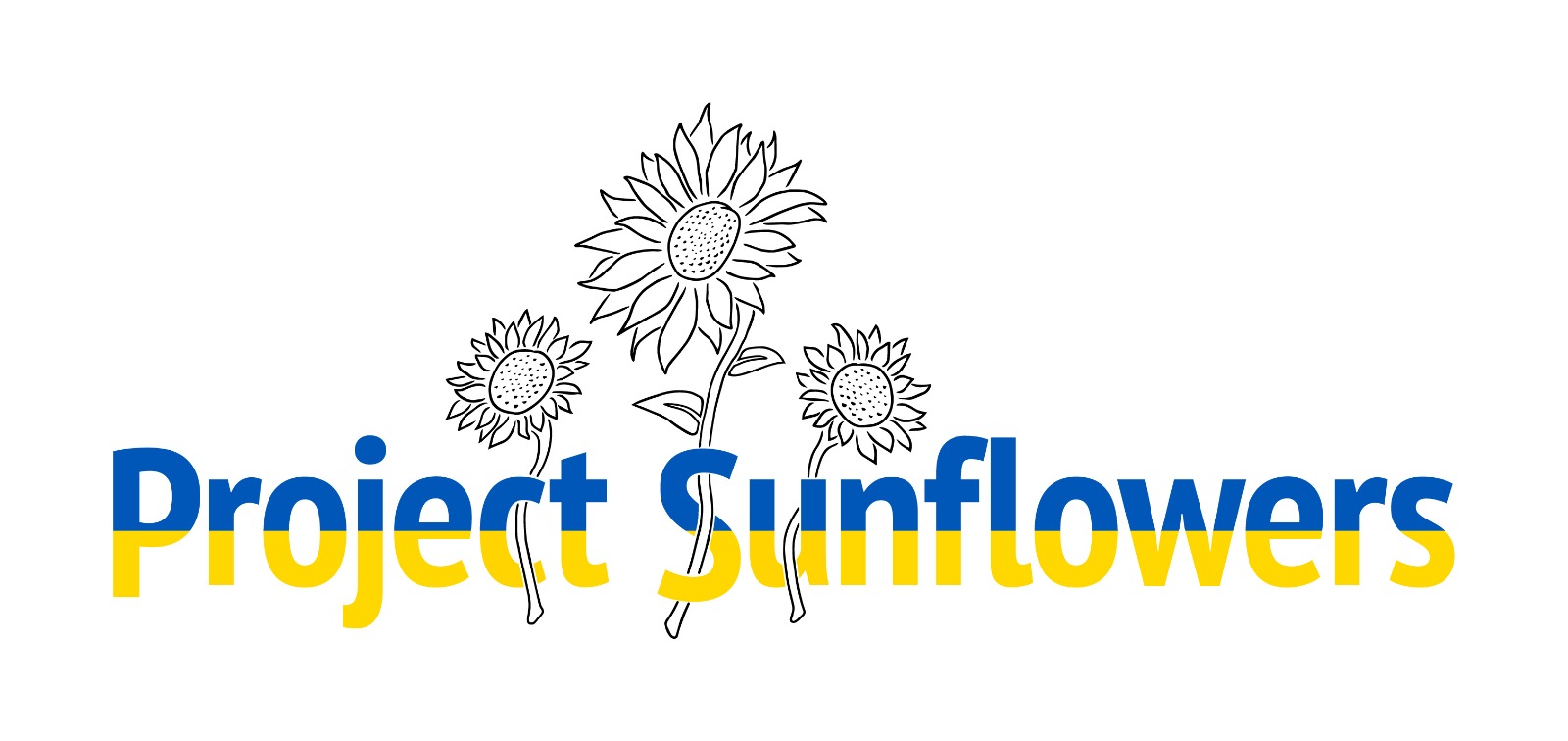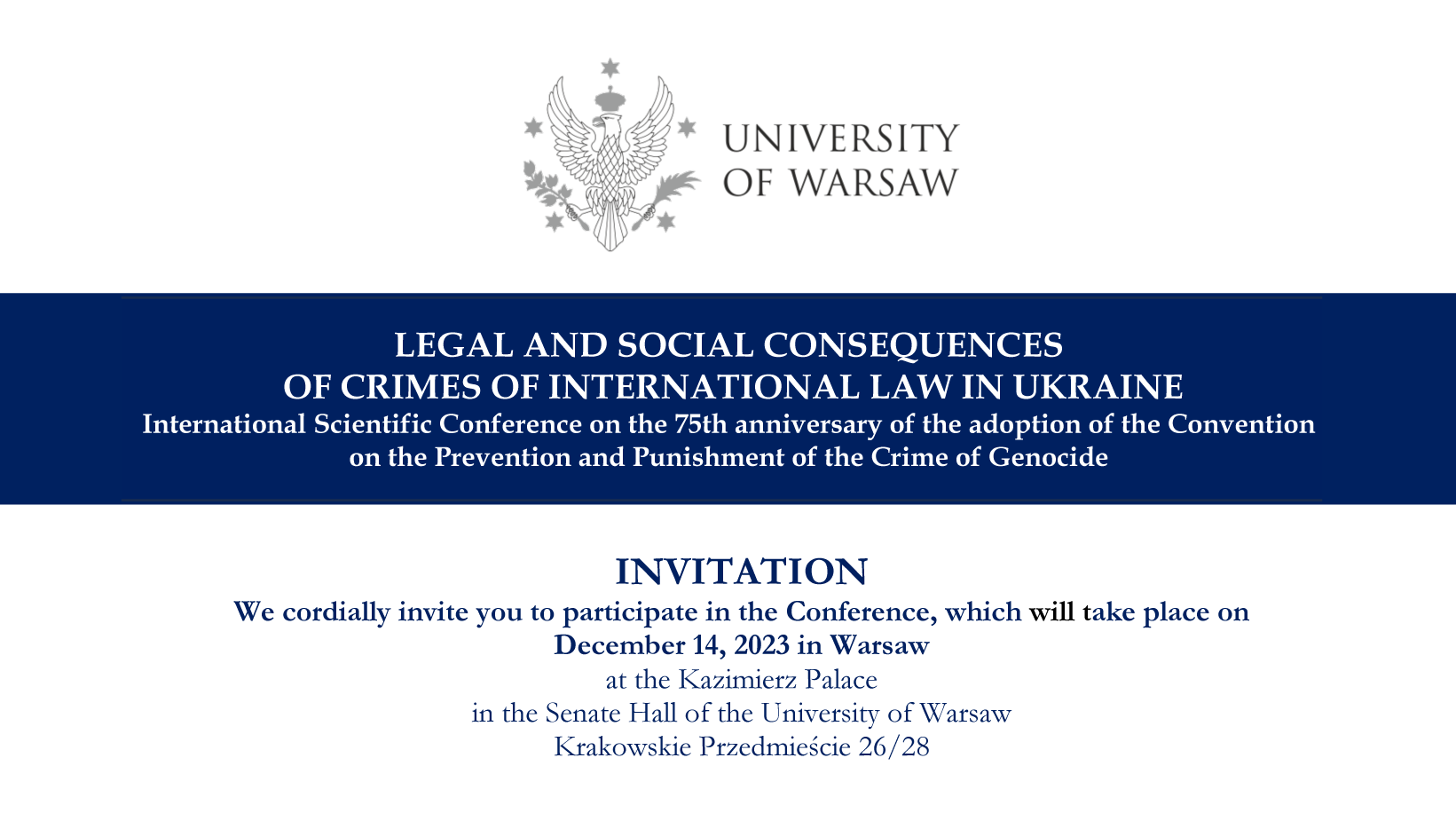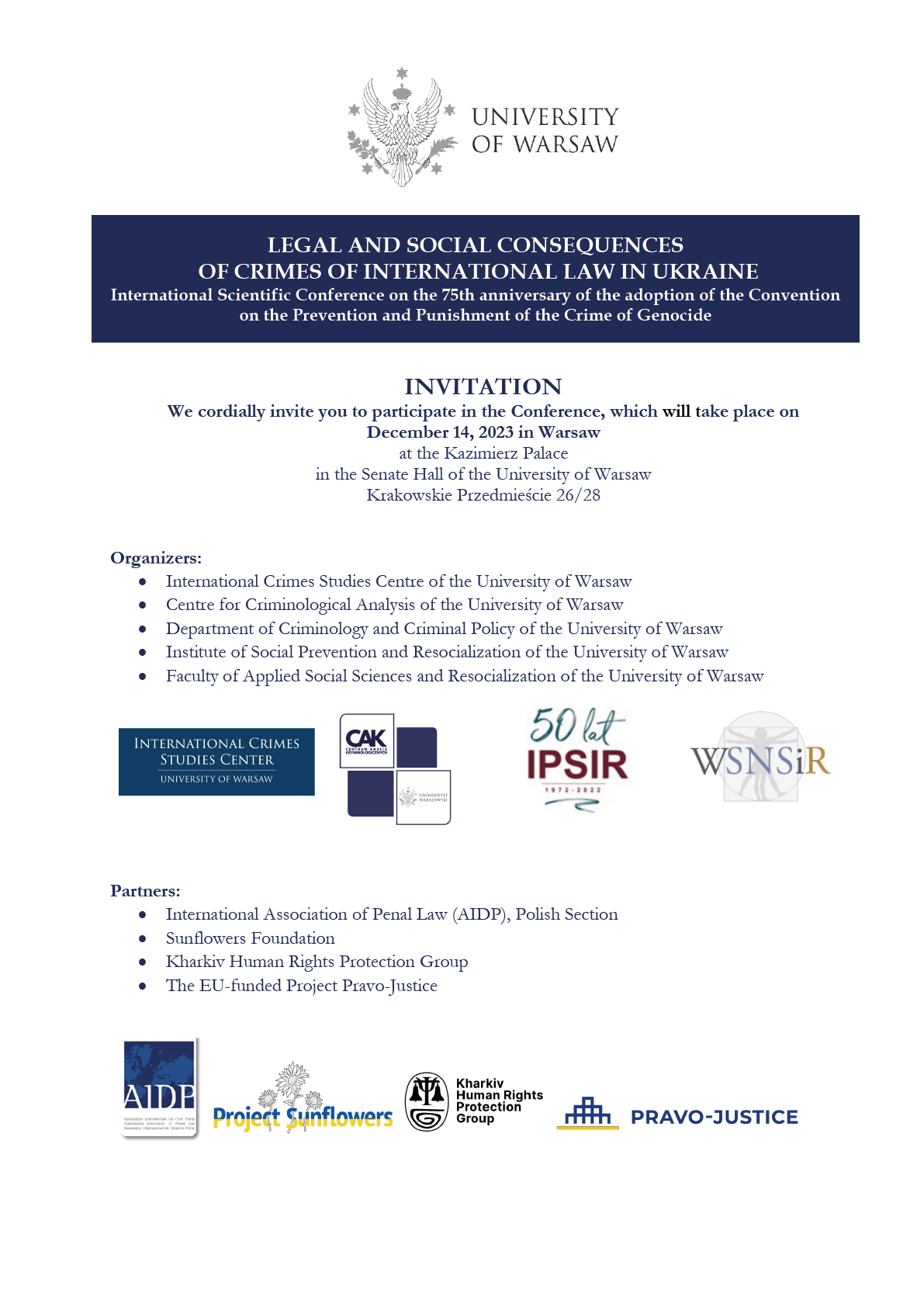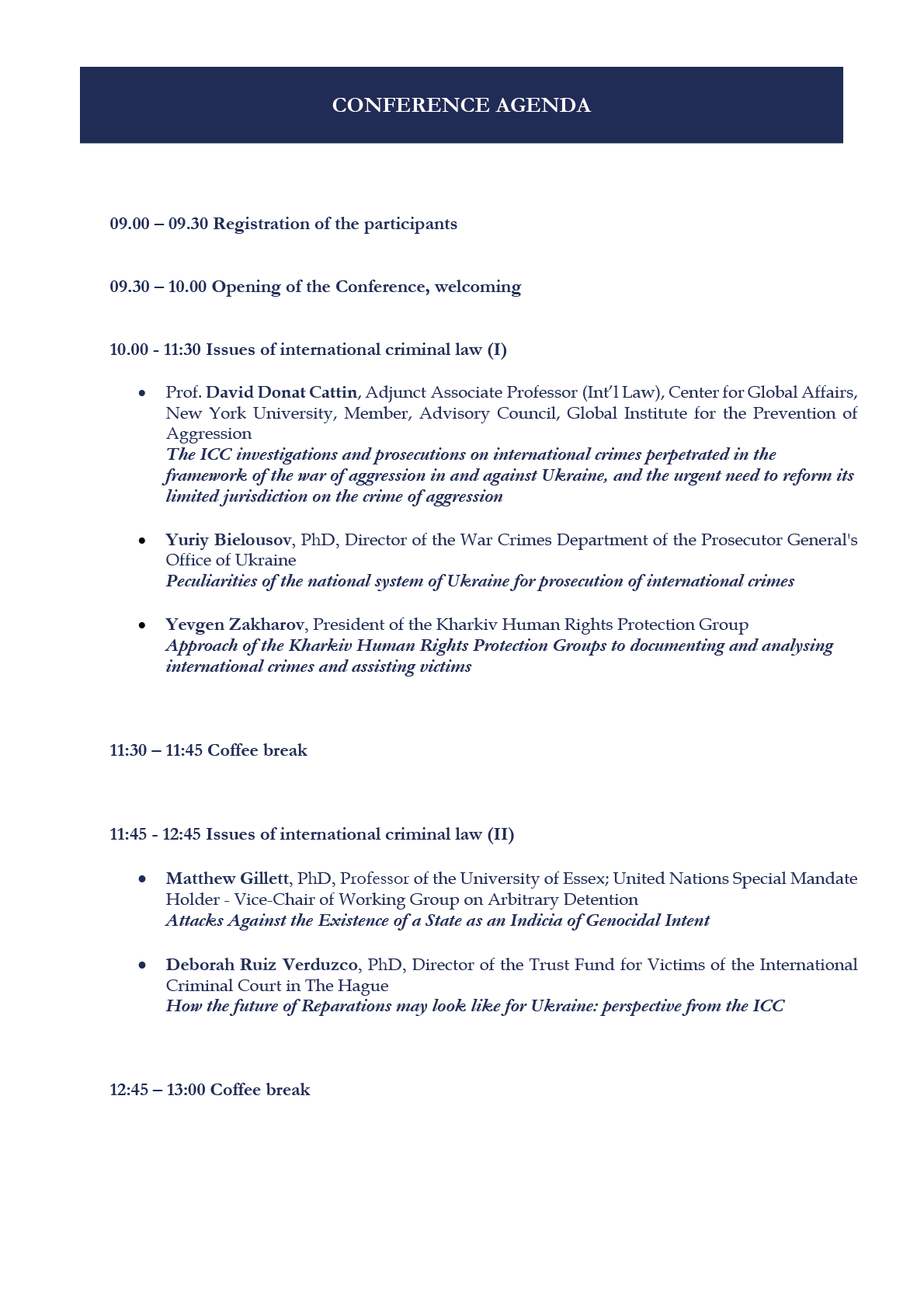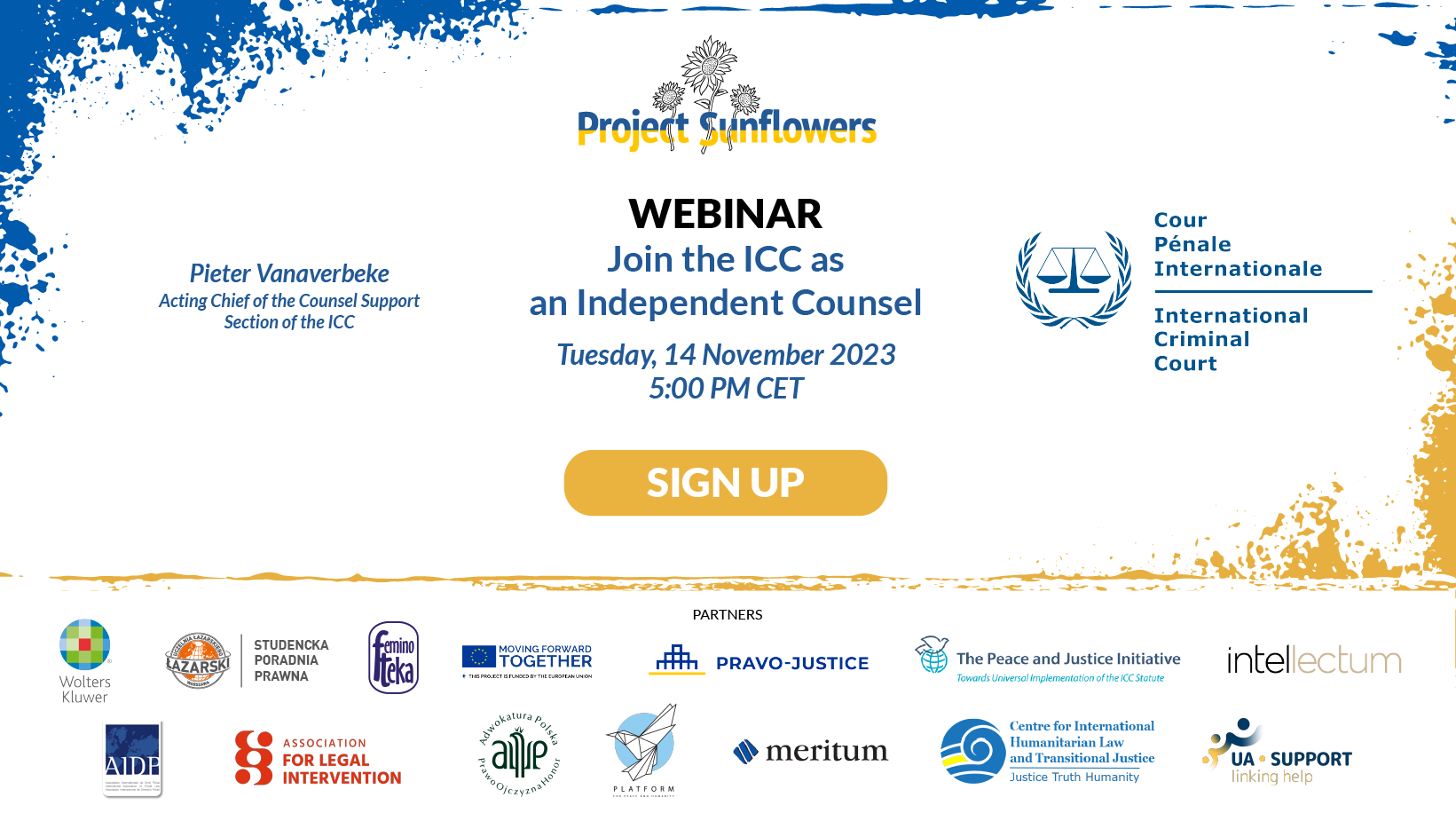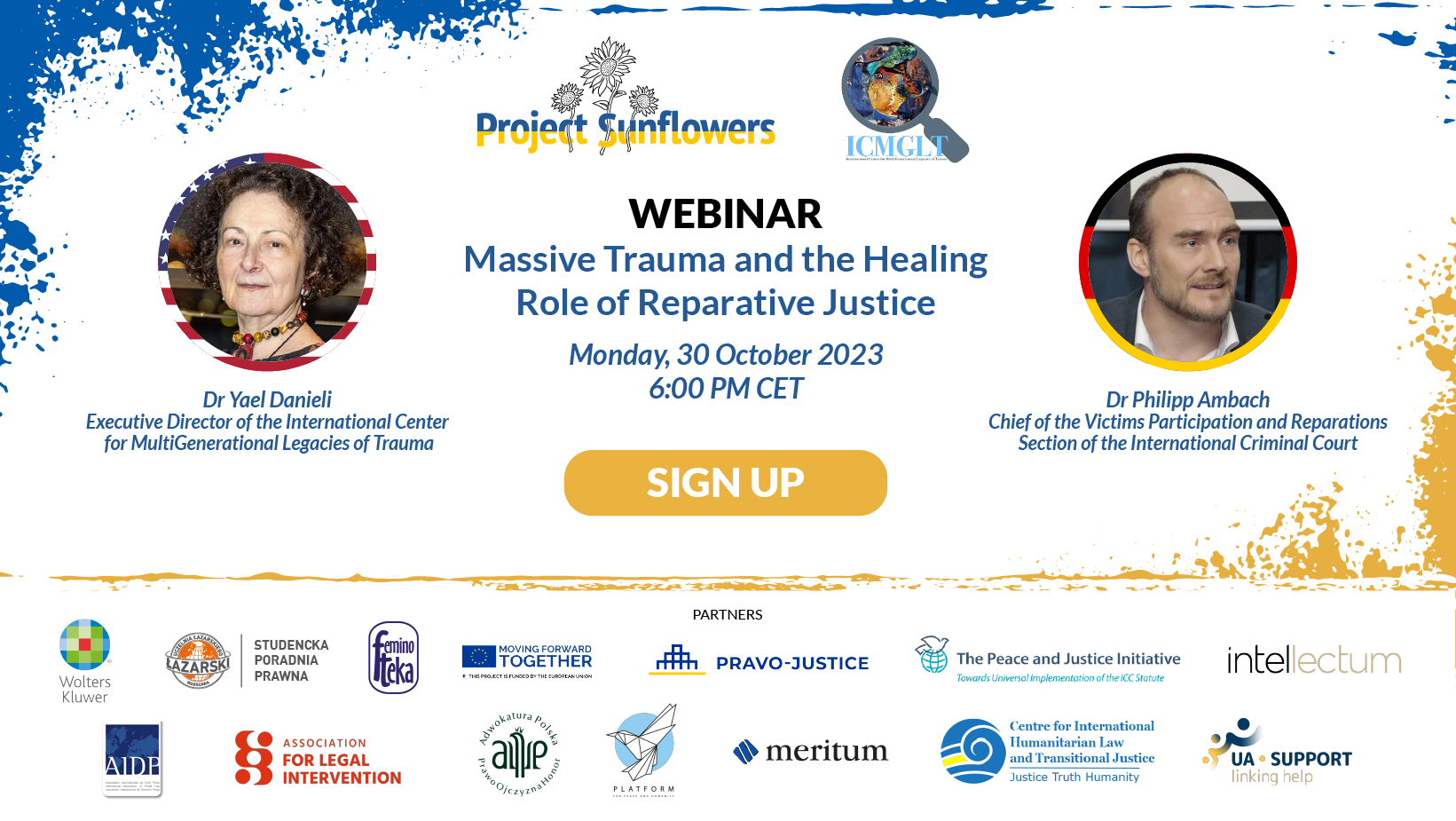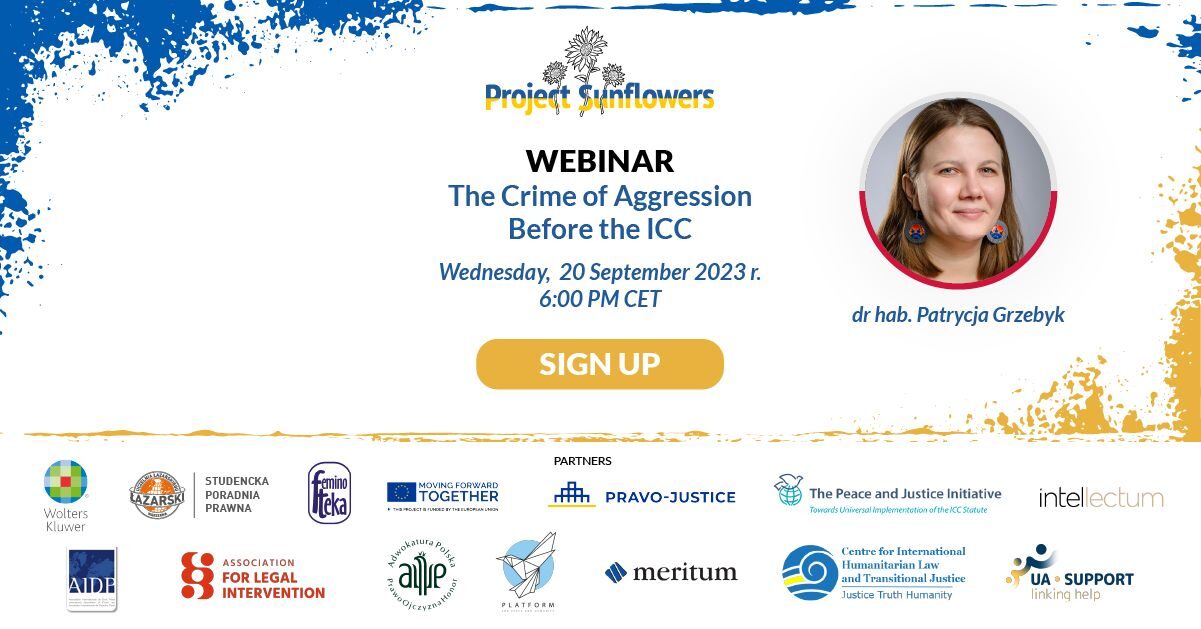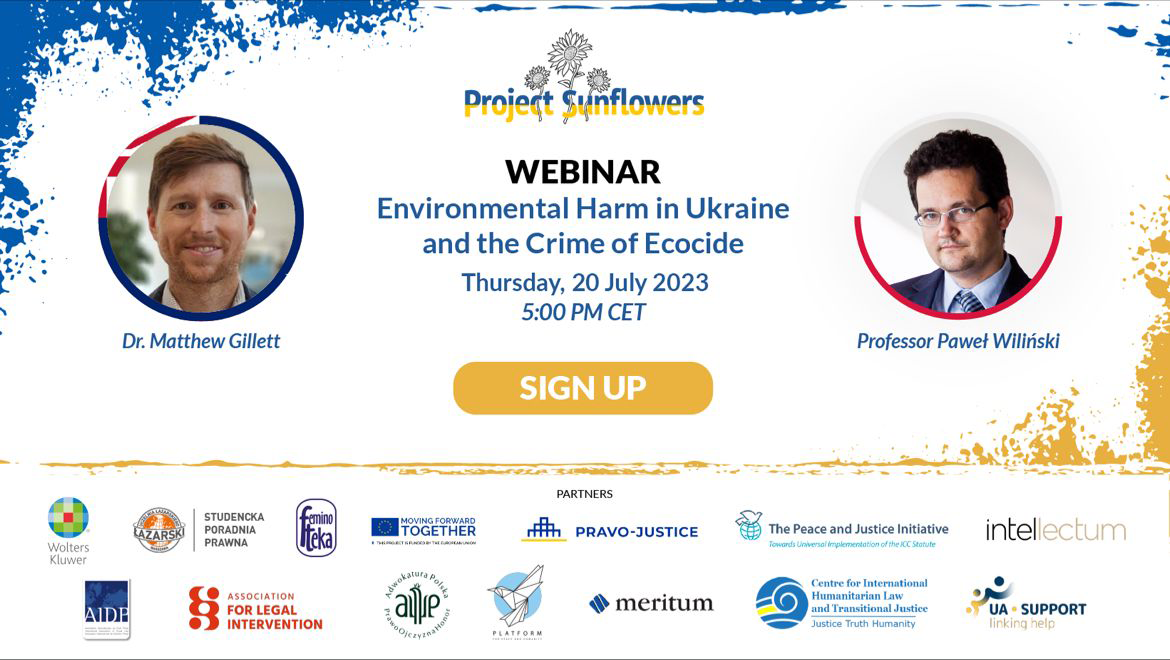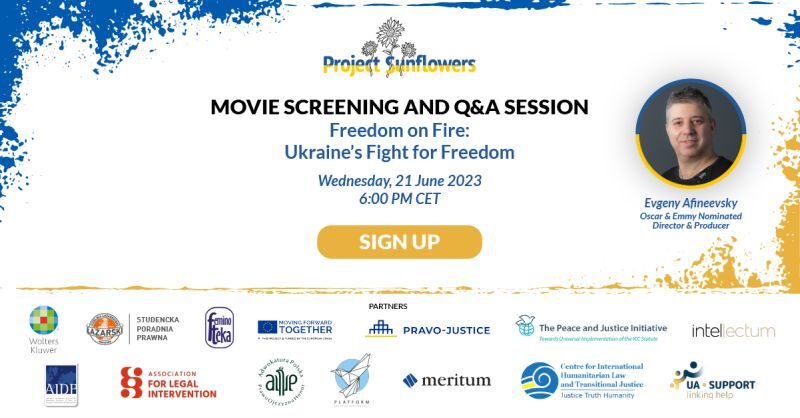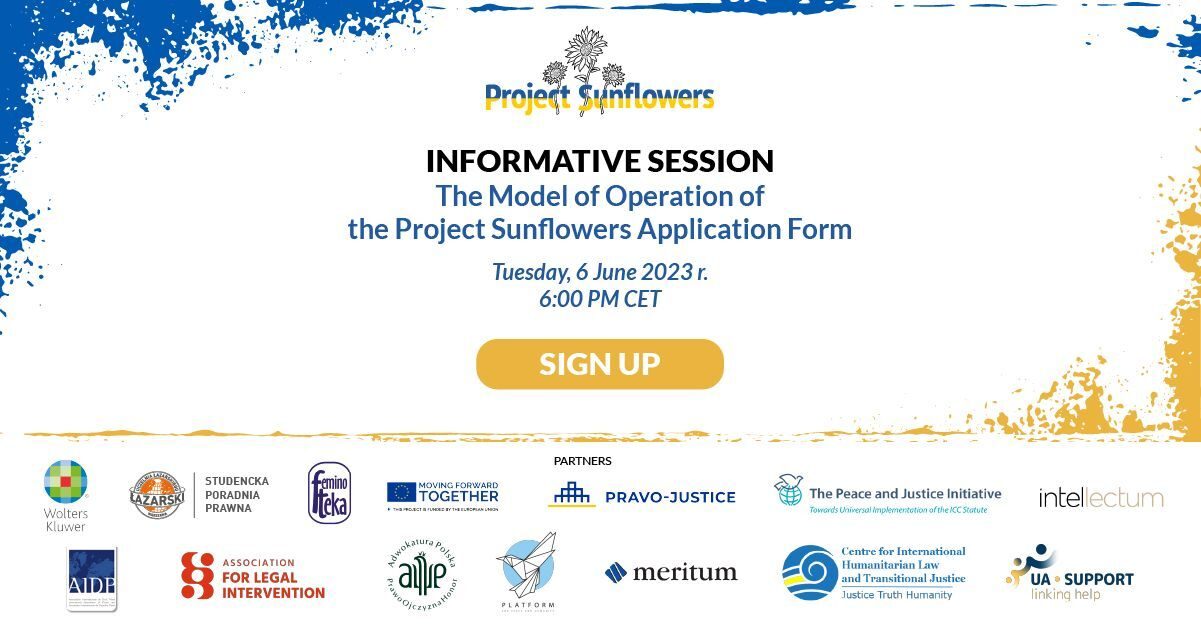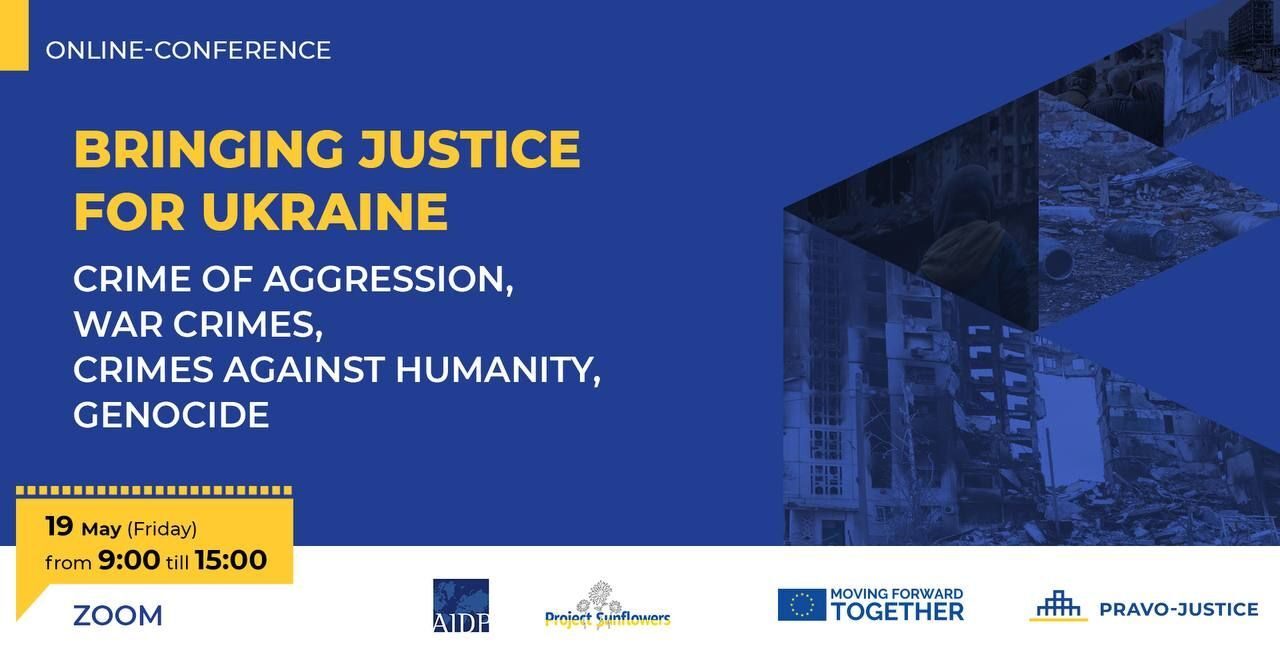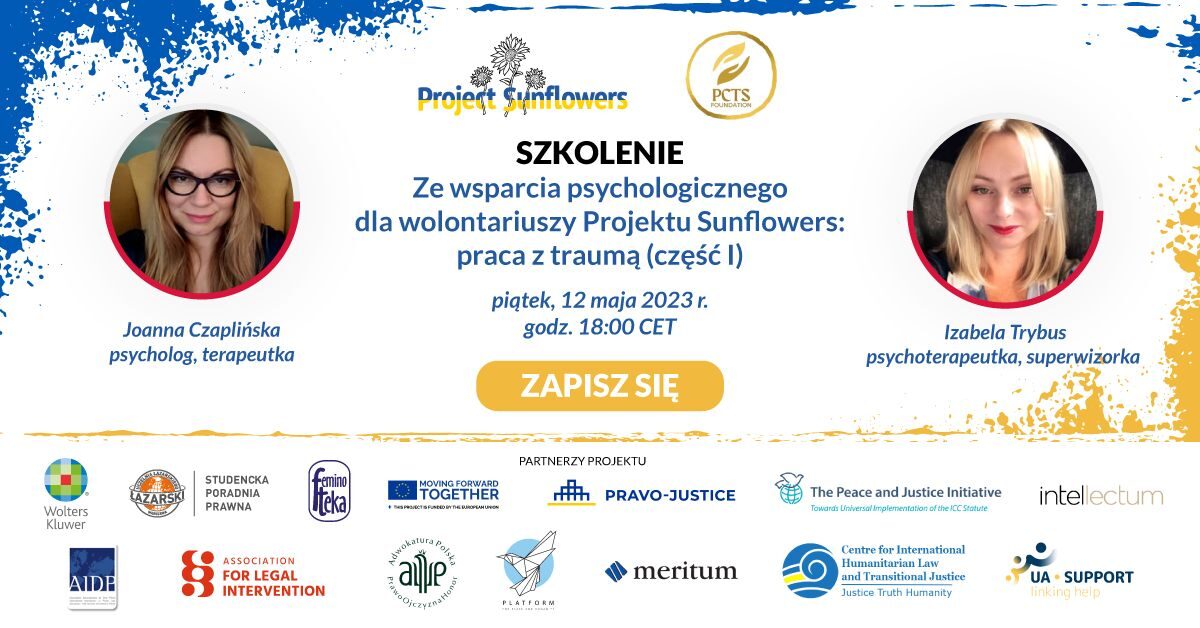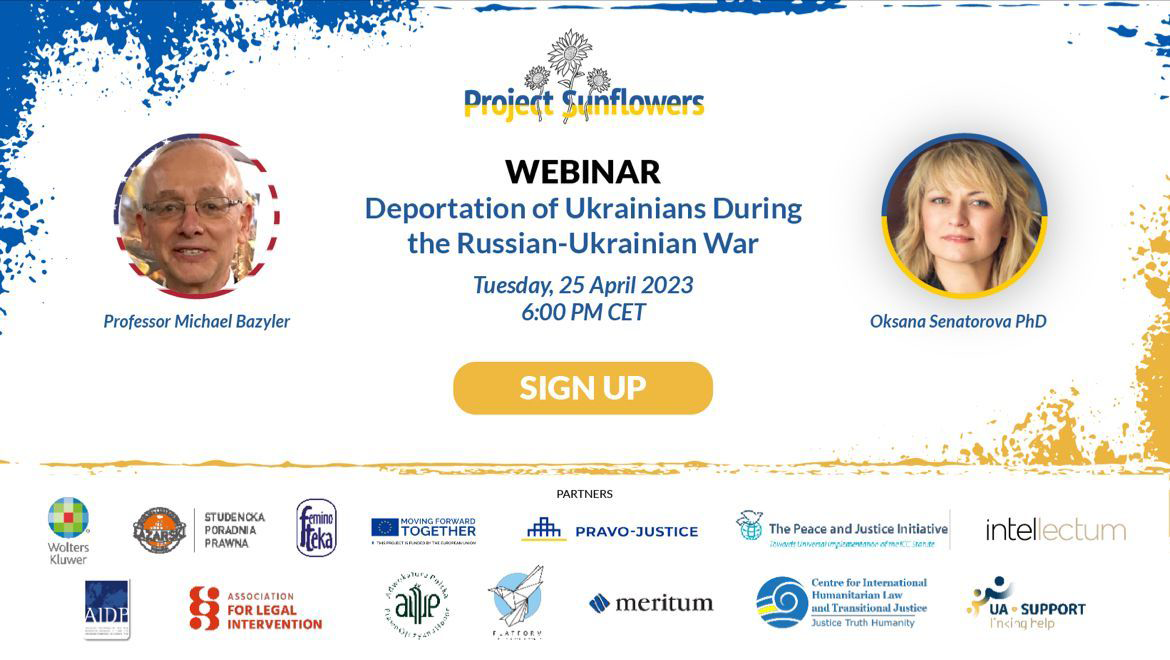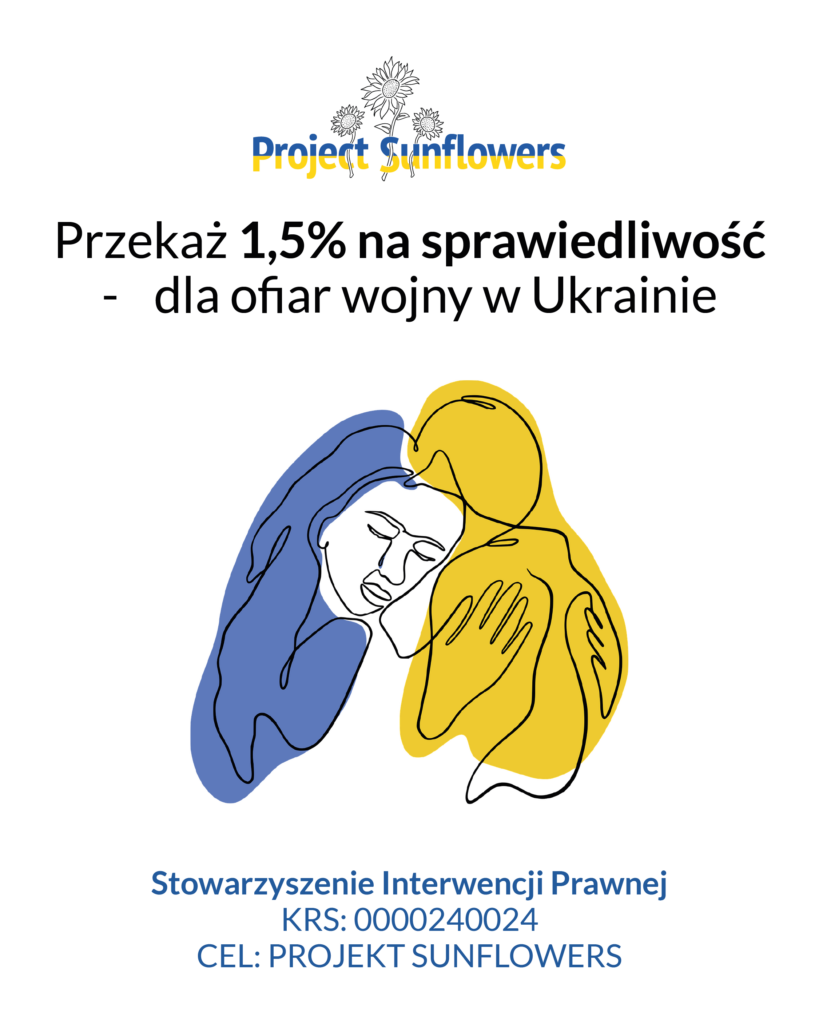Позначка: uk
Join the ICC as an Independent Consel
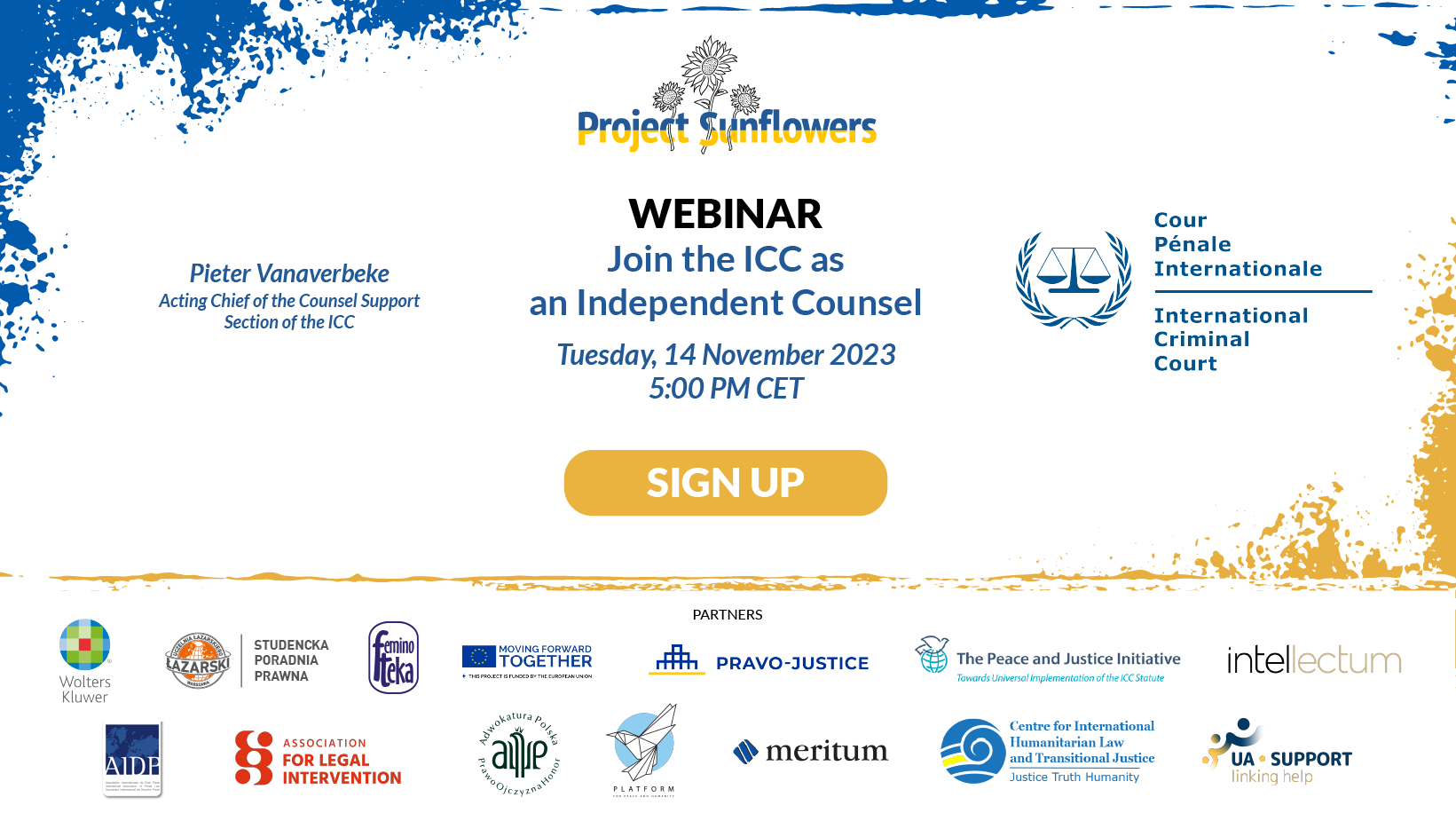
Pieter Vanaverbeke is responsible for, inter alia, the implementation and application of all aspects of the ICC’s Legal Aid Policy as well as the 360 degrees service provision to all Counsel (and team members) active before the Court. Before moving to the CSS in 2015, he has been working at the Court since 2005 in various functions and sections, including the position of Legal Coordinator in the Office of the Director of the Division of Judicial Services and has been deployed to situation countries (Democratic Republic of the Congo, Republic of Uganda) for a prolonged duration (from 2006 – 2009). Pieter Vanaverbeke holds a Master’s Degree in International and National Public law.
The CSS is in charge of centralizing and coordinating all assistance provided to counsel by the Court; and also provides logistical and administrative assistance. The Section also manages the Court’s programme of legal aid for indigent defendants and victims and provides administrative assistance to the Court’s Disciplinary Organs. The CSS is responsible for the following functions, among other:
- assisting persons entitled to legal assistance under the Statute and the Rules to secure such assistance;
- managing the Court’s programme of legal aid for indigent defendants and victims;
- maintaining the Court’s Lists of Counsel, Assistants and Professional Investigators;
- rendering logistic and administrative services to all Counsel acting before the Court, their team members and representatives of states, in order to facilitate their activities before the Court
- facilitating the Court’s Disciplinary Organs’ for counsel elections and appointments as well as the process of designation of members of the Advisory Committee on Legal Texts;
- interacting with Universities and other external stakeholders relating legal profession in order to increase awareness and understanding of the work of the Court;
- coordinating and providing relevant internal and external training events for Counsel.
The webinar will be conducted in English and simultaneous translations into Ukrainian will be available.
Massive Trauma and the Healing Role of Reparative Justice
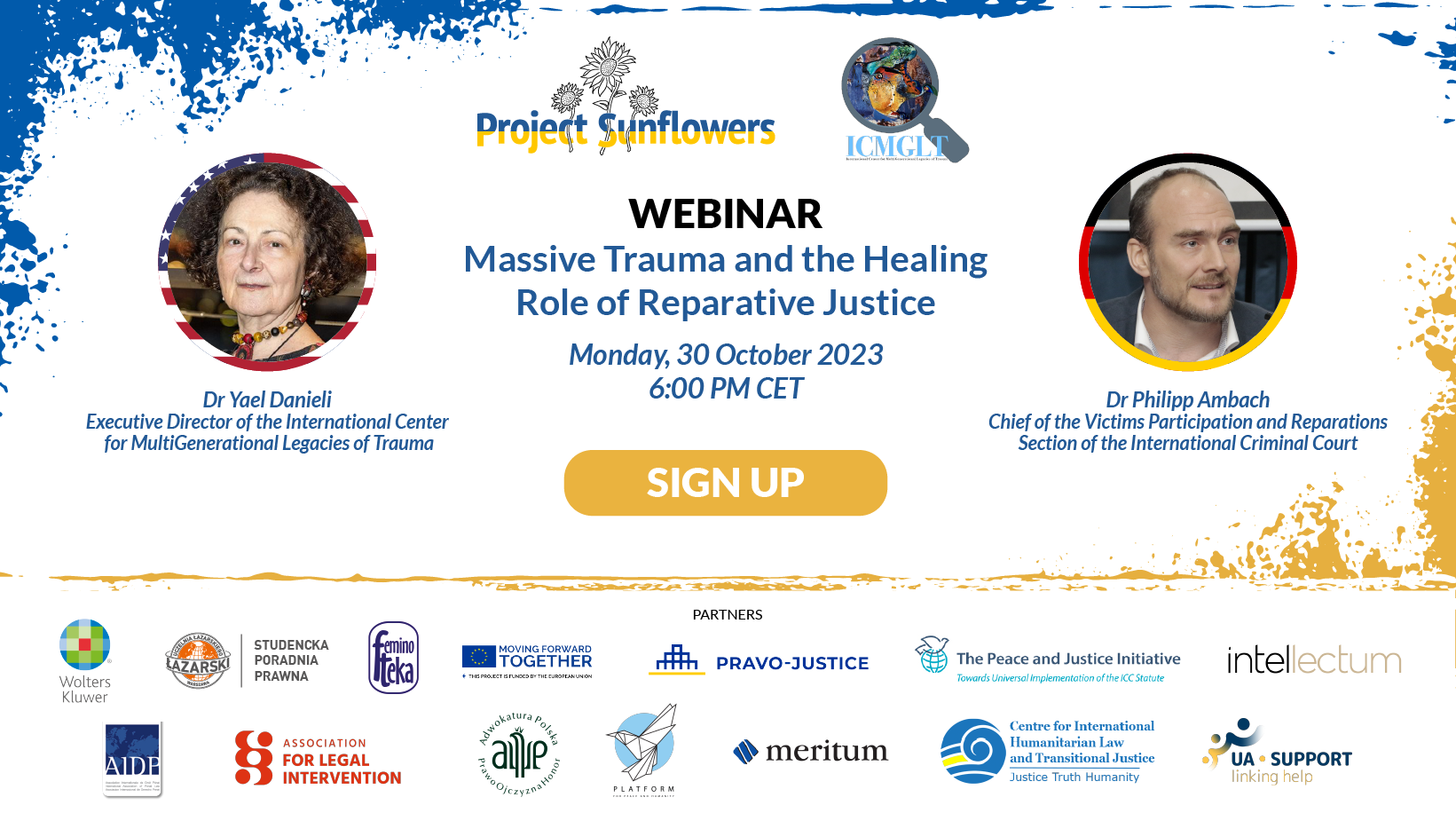
Please, register and join our webinar on Monday, October 30, 2023, at 18:00-20:00 CET, that this time focuses on Massive Trauma and the Healing Role of Reparative Justice here. This will be the first in a series of webinars organised by the Project Sunflowers in cooperation with the International Center for MultiGenerational Legacies of Trauma
First in a series, this webinar emphasizes the need for a multi-dimensional, multi-disciplinary, integrative framework for understanding and engaging with victim/survivors of massive trauma and its aftermath. It will first describe how victim/survivors, their families and communities are affected by mass atrocities, their reactions, concerns, and needs for reparative justice primarily from the psychosocial perspective, considering reparative justice a necessary component among the post-trauma healing processes. Reparative justice acknowledges fully that it is in an ongoing relationship with victim/survivors and views not only the outcome but, sometimes even more importantly, its process as crucial to their experience of justice as part of their healing process from the massive trauma and tragedies they have endured. The webinar will then examine victim/survivors’ actual experiences with/in the international criminal justice system.
The speakers for this unique webinar will be dr Yael Danieli and dr Philipp Ambach, and the meeting will be moderated by dr Marina Lostal.
Dr. Yael Danieli is a clinical psychologist, traumatologist, victimologist and psychohistorian. Dr. Danieli is Founder, Executive Director and Senior Representative to the United Nations of the International Center for the study, prevention and treatment of MultiGenerational Legacies of Trauma; Director, Group Project for Holocaust Survivors and their Children and Past-President, International Society for Traumatic Stress Studies. She has participated in creating all key international law instruments on behalf of victims’ rights and optimal care.
Dr Philipp Ambach is the Chief of the Victims Participation and Reparations Section at the International Criminal Court (ICC). Dr. Ambach worked as a legal adviser to the Judges of the Appeals Chamber at the International Criminal Tribunals both for the former Yugoslavia and for Rwanda. A guest lecturer in international criminal and humanitarian law at various legal institutions, he has published several academic papers in international criminal law.
Dr Marina Lostal is a Senior Lecturer at the School of Law of the University of Essex (UK). Dr. Lostal specialises in the rights of victims in international criminal law, the protection of cultural heritage in armed conflict, and animal law; fields where she has published widely. She has worked as a consultant for several organisations such as the ICC, UNESCO, Geneva Call and the Colombian Special Jurisdiction for Peace.
The webinar will be conducted in English and simultaneous translations into Ukrainian will be available.
To take part in the webinar, please, register here: https://us06web.zoom.us/
The Crime of Agression Before the ICC
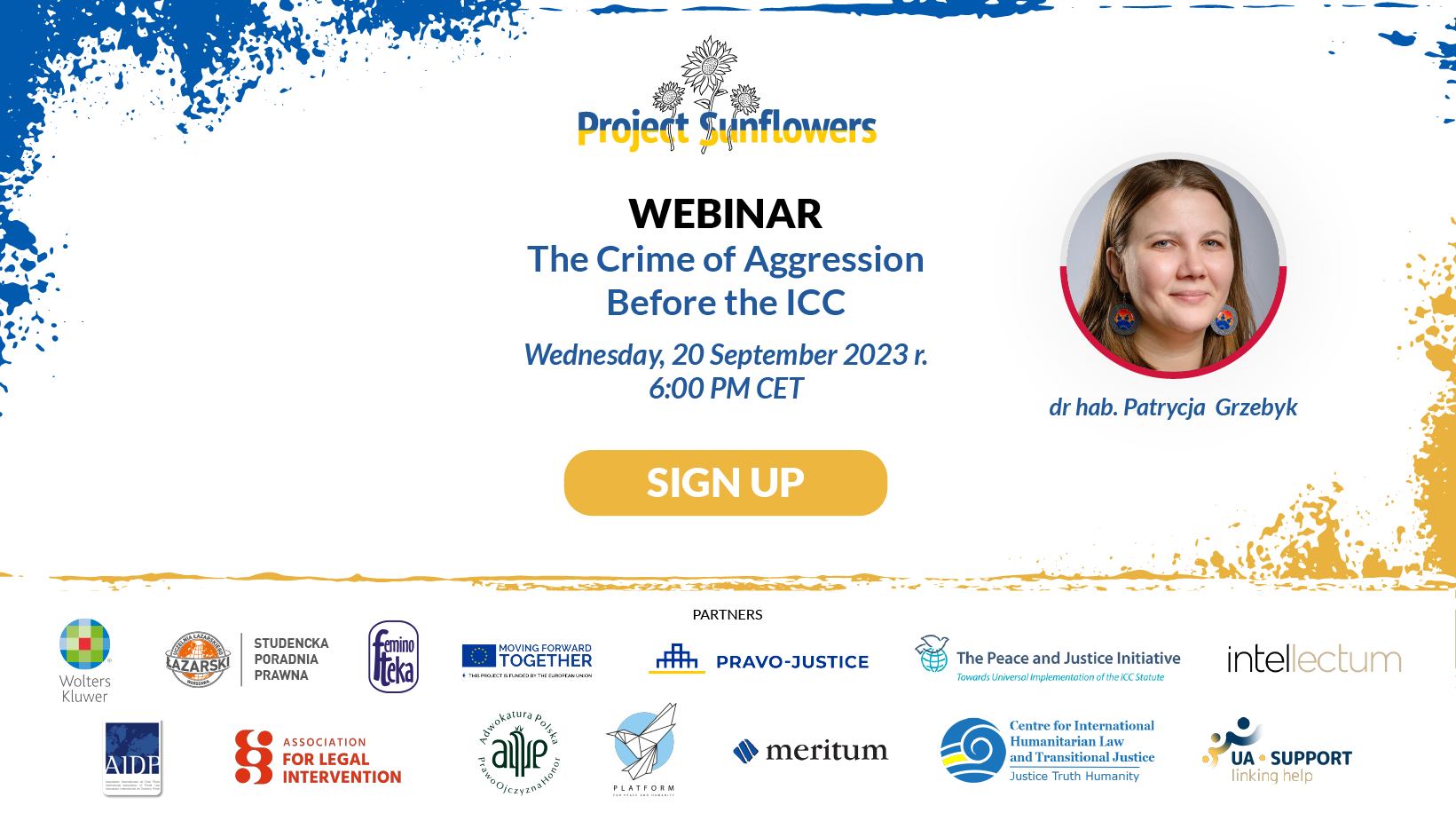
On the 20th of September 2023 the informative session was held on “The Crimes of Aggression before the ICC”. The lecture was given by Professor Patrycja Grzebyk (Associate Professor at the University of Warsaw), a specialist in the area of international criminal law and author of the monograph “Criminal Responsibility for the Crime of Aggression” (Routledge 2013). During the presentation she referred to several questions and problems: Why is it so difficult to initiate ICC jurisdiction over a crime of aggression? What does the UN Security Council have to do with it? Who can be held accountable for the crime of aggression? What is the relationship between the crime of aggression and other international crimes under the Rome Statute? The meeting was moderated by Professor Hanna Kuczyńska and was a joint event of the Project Sunflowers and the EU Project Pravo-Justice.
Environmental Harm in Ukraine and the Crime of Ecocide

On the 20th of July 2023 the informative session was held on “Environmental Harm in Ukraine and the Crime of Ecocide”. The lectures was given by Dr. Matthew Gillett, who works as a Senior Lecturer at the University of Essex. During the webinar Dr. Giller spoke about ecocide definitions existing in the literature and their advantages and disadvantages, demanding either willful or wanton commission of such a crimes or referring either to enumerated or non-enumerated list of criminal acts. He also indicated the problems with proving the commission of such crimes and relevant types of evidence, including inter alia: official information or company records, military orders, intercepted conversations or insider witnesses. Dr. Gillet is an experienced lawyer who has investigated and prosecuted international crimes for over 15 years. He is also a UN Special Mandate holder in Human Rights. Matthew is one of the initiators of Project Sunflowers.
The meeting was moderated by Professor Paweł Wiliński, Chairman of the Foundation Sunflowers and was a joint event of the Project Sunflowers and EU Project Pravo-Justice.
Freedom of Fire: Ukraine’s Fight for Freedom
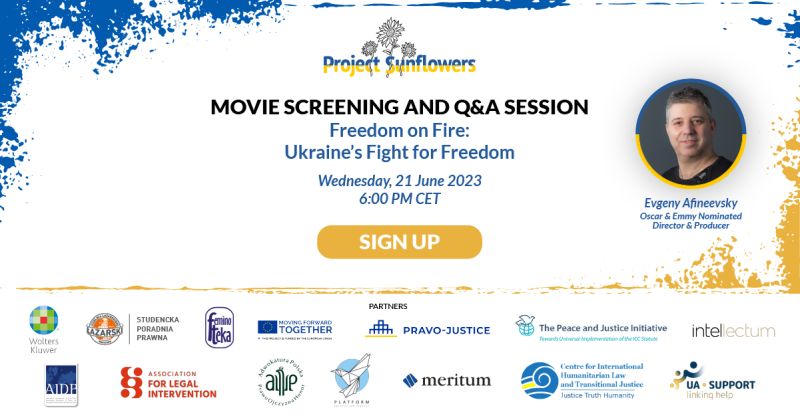
On 21th of June 2023 the movie “Freedom on Fire: Ukraine’s Fight for Freedom” directed by Evgeny Afineevsky was streamlined. The movie had its premiere at 79th Venice Film Festival, where it was recognized with the Kineo Award, as well at Toronto International Film Festival and many other prestige’s festivals. This movie was made in less than 6 months of production and 3 months of editing with 9 editors around the world in Ukraine / the United States/ Europe, with the last filming done in a war zone on 9th of August 2022. Evgeny Afineevsky earned an Oscar and Emmy nomination in 2016 for WINTER ON FIRE: UKRAINE’S FIGHT FOR FREEDOM, which details the 2013 student uprising that transformed into a violent revolution. He built his moviemaking career on providing a first-hand account of conflict, even if it means putting his own life in danger. The director and his team did everything possible to tell this untold story of Ukraine’s struggle for their freedom and dignity, through the eyes of children and their parents, soldiers, doctors, volunteers, journalists, ordinary people. The movie “Freedom on Fire: Ukraine’s Fight for Freedom” captures eyewitness testimony to the crimes committed in Ukraine, recording the scale of the destruction and the drama of ordinary people whose dream is to live in a free country in peace. The streaming was followed by a Q&A session with Evgeny, who had the opportunity to talk about the making of the movie, its characters and its message. The screening was organised by Project Sunflowers and EU Project Pravo-Justice.
The Model of Operation of the Project Sunflowers Application Form
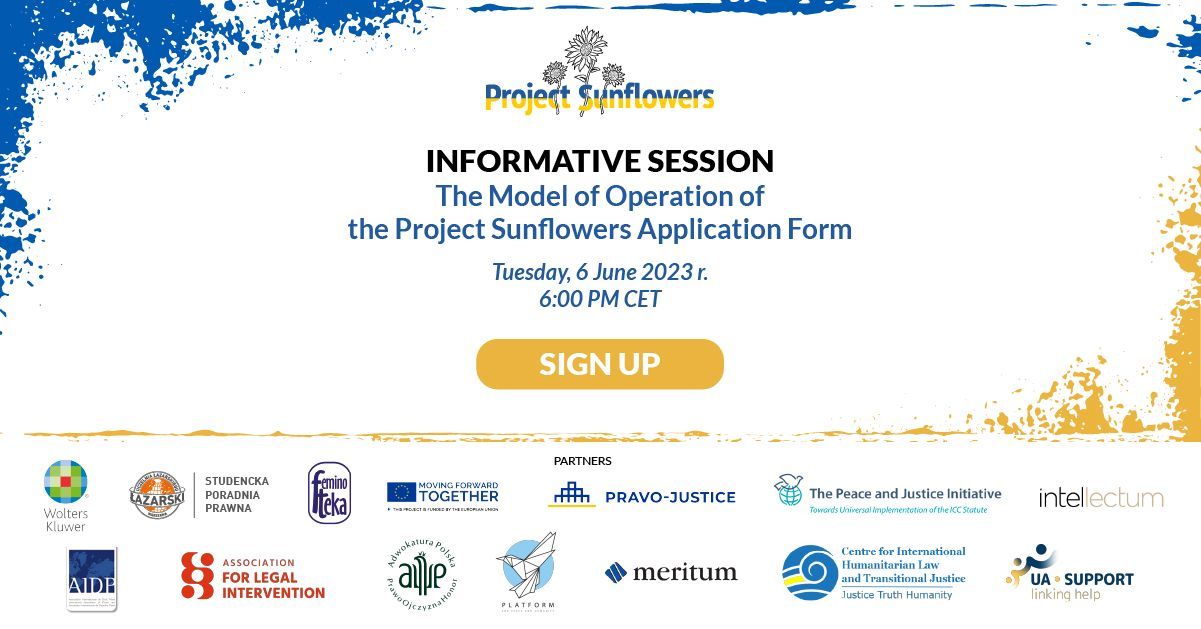
On the 6th of June 2023, the informative session was held on “The Model of Operation of the Project Sunflowers Application Form”. During the session it was be explained how the volunteers need to react when a new request to share information online is registered. All volunteers need to be trained of filling in the form, as they all need to be prepared for assisting the victims with filling in the form.
The meeting for volunteers was moderated by Ewa Hofmańska, Ph.D and was a joint event of the Project Sunflowers and EU Project Pravo-Justice.
Conference “Bringing Justice for Ukraine”
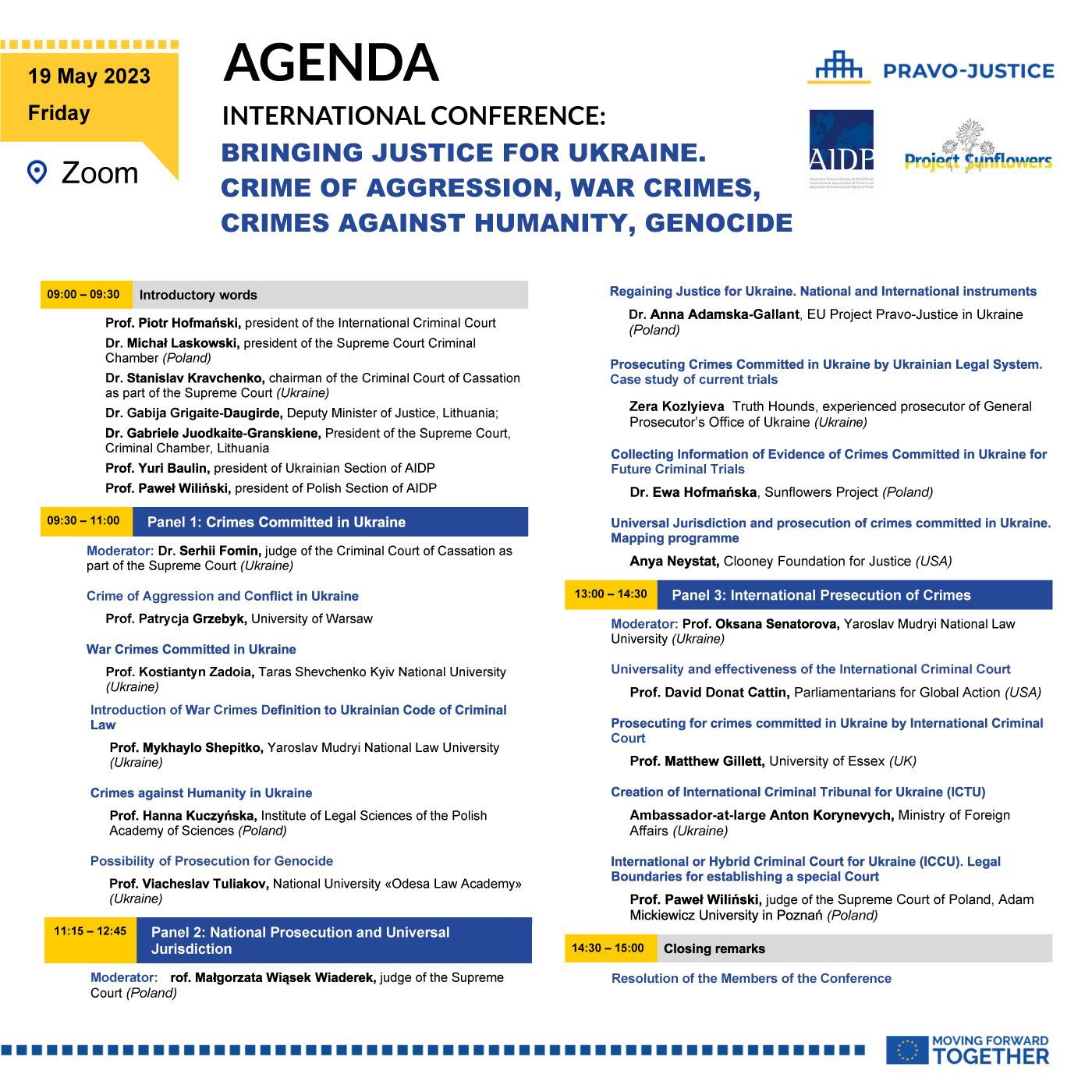
Join us virtually for the conference BRINGING JUSTICE FOR UKRAINE. CRIME OF AGGRESSION, WAR CRIMES, CRIMES AGAINST HUMANITY, GENOCIDE. The conference will take place on May 19, 2023 on the Zoom platform. The event will start at 9:00 CET and end at 15:00 CET.
The aim of the conference is to discuss among Ukrainian and Polish lawyers with the participation of international criminal law experts on practical ways to hold perpetrators of crimes committed in Ukraine accountable.
The organizers of the conference are: the Polish group of AIDP (International Association of Penal Law), Ukrainian group of AIDP, EU Pravo-Justice and our Project Sunflowers.
To register, please, use this link: https://bit.ly/3VH0k8e
The conference is open to the public. It will be conducted in English. Simultaneous translation into Ukrainian will be provided.
Training in Psychological First Aid
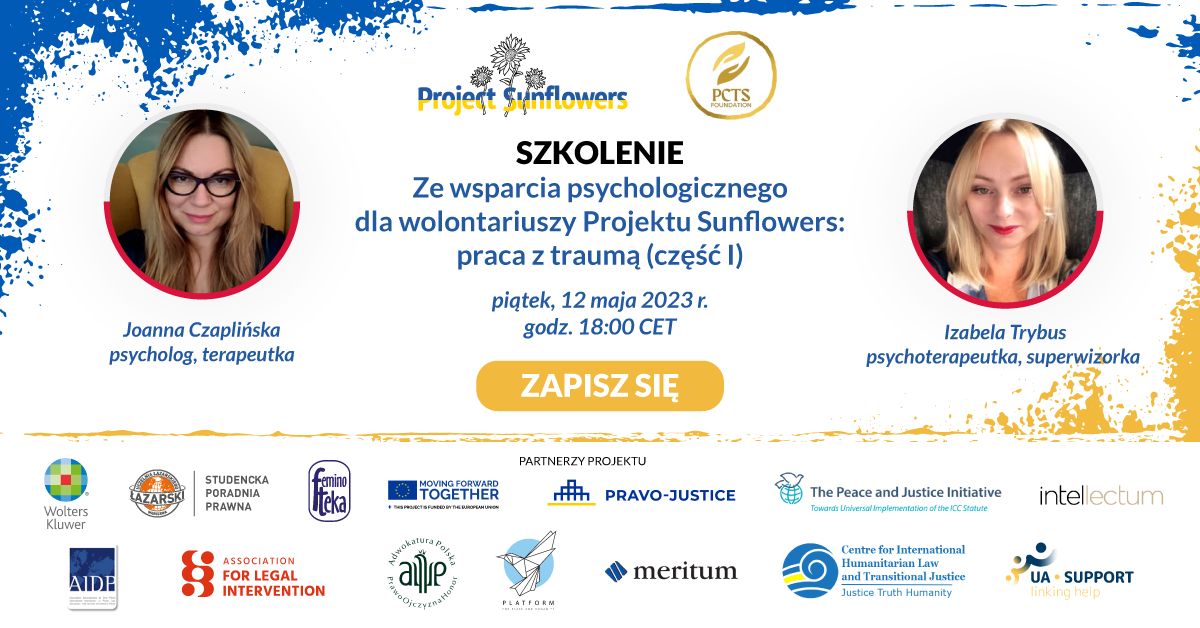
We would like to invite you to a new series of training sessions for Polish volunteers of the Project Sunflowers: working with trauma. The training will be led by Joanna Czaplińska, psychologist and EMDR therapist, and Izabela Trybus, psychotherapist and supervisor, from the Polish Centre for Torture Survivors. This training is the result of the Sunflowers Project’s collaboration with The Polish Centre for Torture Survivors in preparing Sunflowers Project volunteers to work with people who will be filling in the application form to collect information about evidence of crimes committed in Ukraine and their victims.
The first part of the training will take place on 12 May 2023, at 18:00 CET, in a remote format. We will announce the second part of the training later (this part of the training will take place 2-3 weeks apart after the first part of the training). The order of registration is decisive. Places are limited.
The training for English-speaking volunteers will take place on a separate date, which will be announced soon.
To register, please use the following link: bit.ly/3nz4LFC
Deportation of Ukrainians During the Russian-Ukrainian War

On the 25th of April 2023 the Project Sunflowers, the Pravo-Justice Project and The National School for Judges of Ukraine organized the informative session on Deportation of Ukrainians During the Russian-Ukrainian War.
Olha Sribniak from the Pravo-Justice Project welcomed the guests and then Iwan Bałakliczkij from the National School of Justice gave also a welcome speech.
The moderator of the webinar was Professor Mykhaylo Shepitko, member of the Executive Board of the Project Sunflowers, a professor in the Department of Criminal Law at Yaroslav Mudryi National Law University and a Leading Staff Researcher of Аcademician Stashis Scientific Research Institute for the Study of Crime Problems (Kharkiv, Ukraine).
The first speech was given by Professor Michael Bazyler of the Fowler School of Law, Chapman University, California, who was focusing on how forced transfer of children is an act of genocide and talked about how Nuremberg prosecution of German perpetrators for forced transfer of children in the RuSHA trial (Rasse- und Siedlungshauptamt, the “Race and Settlement Main Office”) against the SS racial policies (officially, United States of America vs. Ulrich Greifelt, et al) established that kidnapping children was crime of genocide – and can also be classified as a crime against humanity. It was the eighth of the twelve trials held in Nuremberg by the U.S. authorities for Nazi war crimes after the end of the World War II.
The next speaker was Oksana Senatorova, PhD, a founder and Director of the NGO “Centre for International Humanitarian Law and Transitional Justice” (CIHLTJ) and an Associate Professor of the International Law Department at Yaroslav Mudryi National Law University, who is also the co-founder of the Foundation Sunflowers and a member of the Law Commission of Ukraine under the President of Ukraine, a Coordinator of the Working Group on the Protection of Victims of Armed Conflict of the Interdepartmental Commission on Implementation of IHL in Ukraine, responsible for monitoring the current situation of relocating Ukrainian children who spoke about the factual situation of the deportation and forcible transfer of Ukrainian citizens, giving particular attention the outline the legal regulation of the prohibition of deportation and its application in the context of this armed conflict; she also presented the role of the Russian leadership in the deportation of children and highlighted the Ukraine’s current actions in response to these deportations and the gaps in national legislation and practice, and conclude with recommendations.
The webinar was conducted in English with simultaneous translation into Ukrainian. Please, watch the abstract of the webinar.
